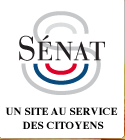Document type: Written answer published in Journal official du Sénat
Authors: Question: Patrick Chauvet (Seine Maritime - UC). Answer: French Ministry of Agriculture and Food
Question: Mr Patrick Chauvet draws the attention of the Minister for Agriculture and Food to the difficulties associated with the sale of foie gras. Gastronomy is undoubtedly one of France's greatest assets. It is essential for the economic activity of the whole of its territory, a unifying factor and a factor of social cohesion. It is one of the pillars of our identity and our art of living, which is envied throughout the world.
However, recent news has revealed that the mayors of large cities (Grenoble, Strasbourg, Bordeaux, Lyon, Villeurbanne, etc.) have decided to stop serving foie gras at official receptions and in school canteens. They justify their decision on the grounds that this product comes from a farming method that goes against animal welfare.
Indeed, the practice of force-feeding geese and ducks is the subject of the strongest criticism. It is accused of 'artificially' fattening animals by feeding them too many calories. However, overfeeding is a natural phenomenon associated with migration. Before leaving, geese and ducks are used to eating abundantly in order to meet their needs during the migration journey. Force-feeding thus acts physiologically in the same way on the birds' livers.
The profession is the victim of repeated attacks which add to the current constraints. Not only do foie gras producers have to meet the obligations linked to the covid-19 pandemic, but also those linked to avian flu, as well as increases in cereals that cannot be passed on to customers.
The sector, which provides a living for around 100,000 families, is now being heavily impacted by these large-scale denigration measures. At the initiative of local authorities and certain associations claiming to protect the animal cause, pressure on restaurant owners is increasing so that they reduce or even stop offering foie gras on their menus. For foie gras professionals, this attitude is no longer tolerable.
He asked her to specify the measures she intends to take to put an end to such practices.
Answer: Foie gras is a traditional, cultural and gastronomic heritage product recognised by the French Ministry of Agriculture and Food. Its production is constantly evolving to improve animal welfare in line with the position of the public authorities and professionals. In this respect, a European charter for palmiped production was adopted in 2011. In addition, since 2016, the regulations have evolved to improve the environment of palmipeds intended for foie gras production so that they are reared in groups (minimum of 3 per housing unit), thus marking the end of the use of confined-movement cages. In France, the Palmi G confiance approach, developed by professional practitioners, encourages farmers in the sector to agree to respect 7 core practices in livestock rearing, such as training in animal welfare, the comfort of the animal on the farm, feeding, and the relationship between the farmer and the animals. An independent organisation is responsible for monitoring compliance with this charter on member farms, and the charter's main aim is to evaluate and continuously improve farming practices. Since 1 January 2022, a further change in the regulations requires the designation of a trained animal welfare advisor on poultry (including palmiped) farms, and pig farms. In line with the animal welfare policy in force in France, the Ministry of Agriculture is providing financial support for research through an agreement with the National Research Institute for Agriculture, Food and the Environment (INRAE), which includes a project on alternatives to force-feeding. This project, OCTRA'palm (optimisation and characterisation of spontaneous fattening in palmipeds), aims to determine the physiological possibility of palmipeds producing an 'alternative' foie gras through natural self-feeding, which could then be produced without forced feeding. The results of this work are not yet available. France's link with foie gras, which is part of the cultural and gastronomic heritage protected in France under the terms of Article L. 654-27-1 of the Rural and Maritime Fishing Code, is a permanent one and the French authorities support it whenever it is useful and necessary.




